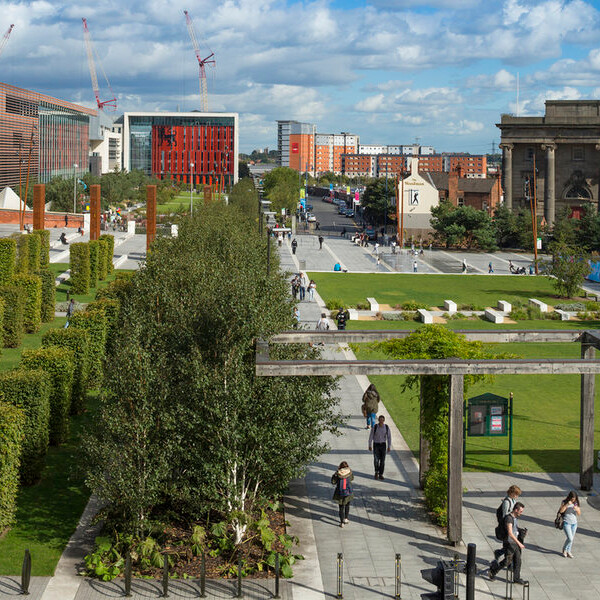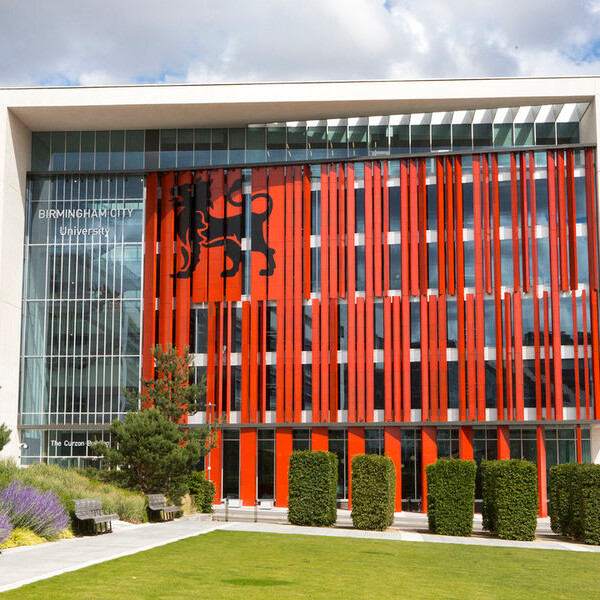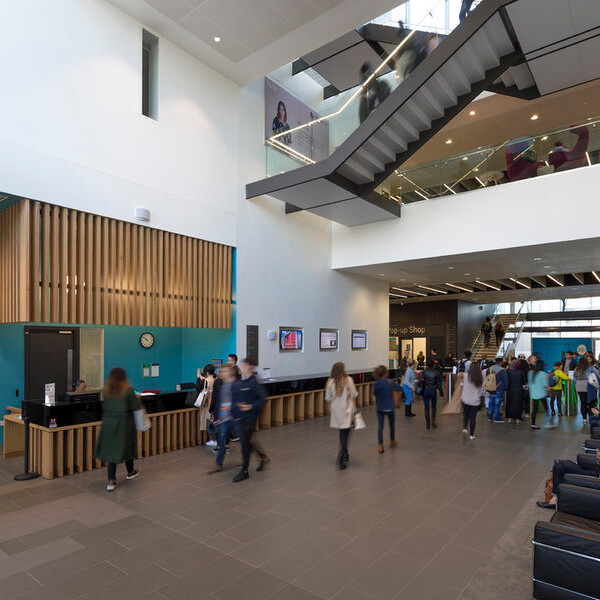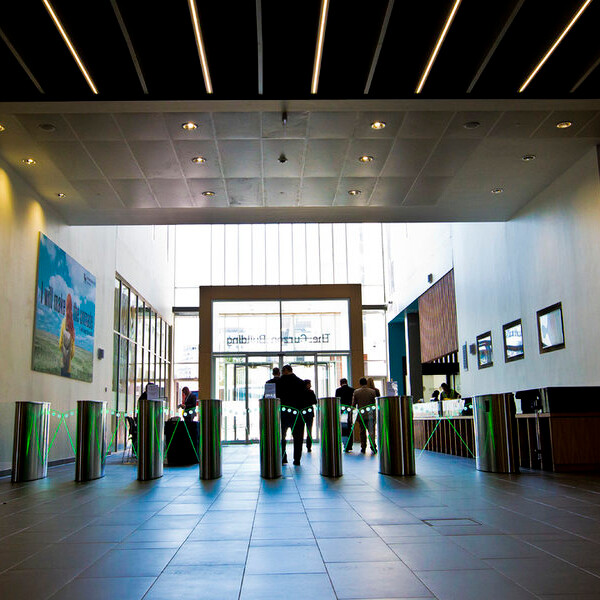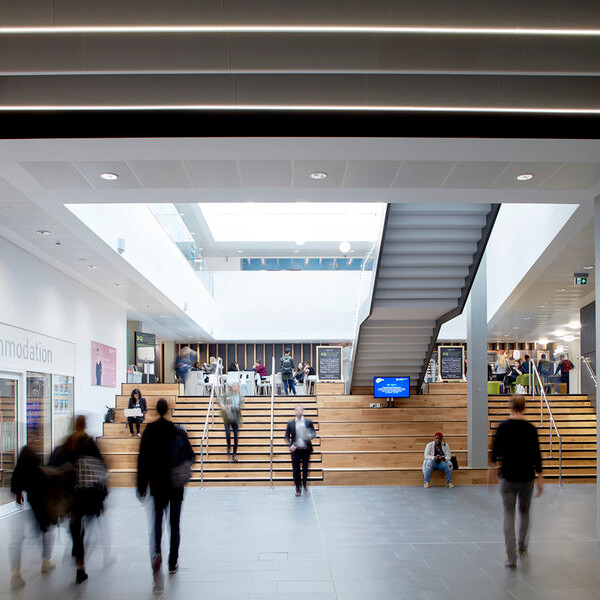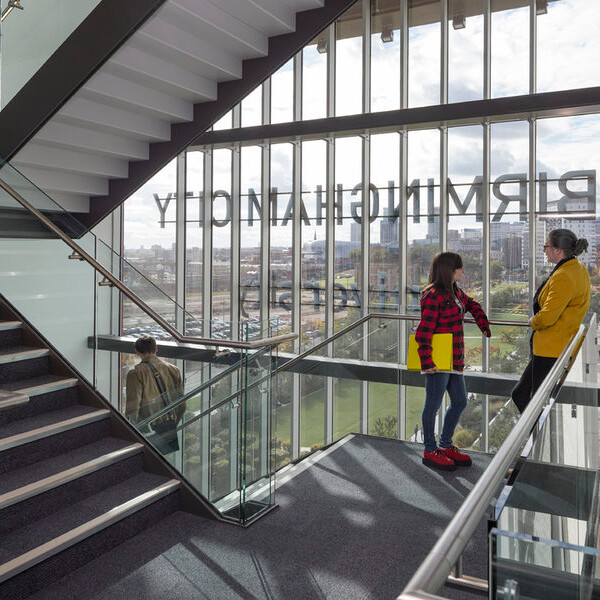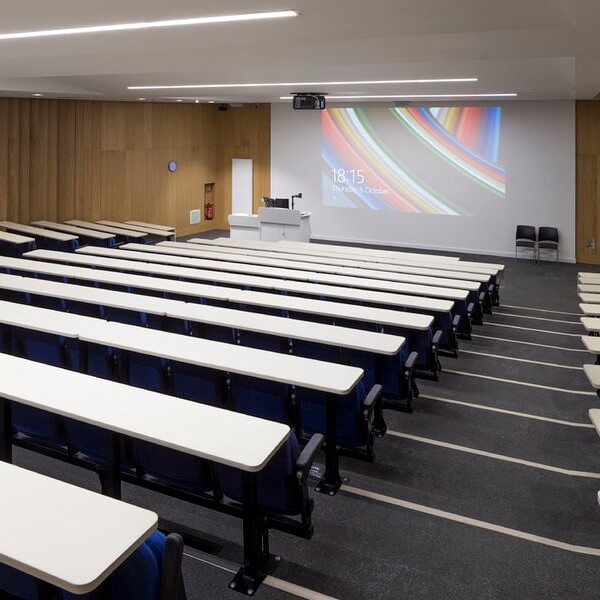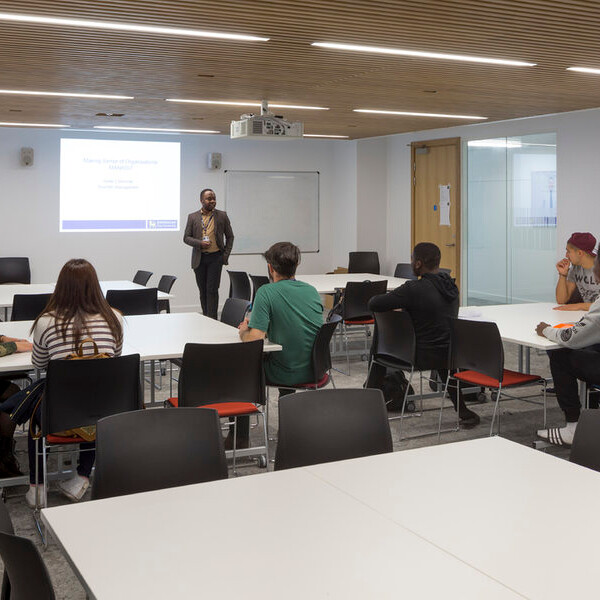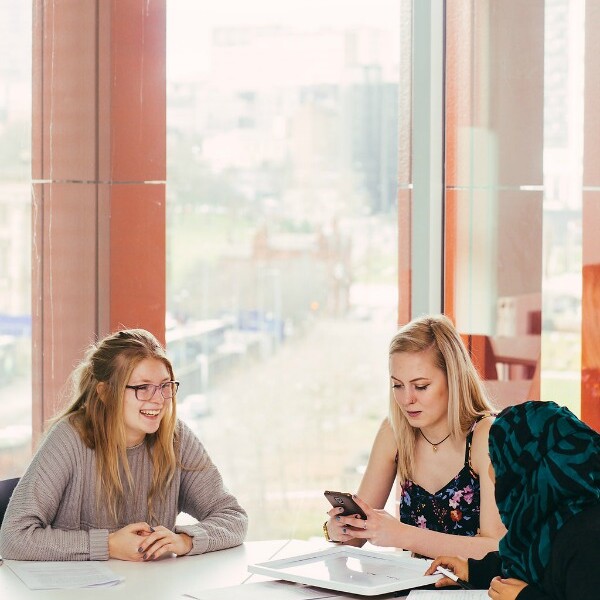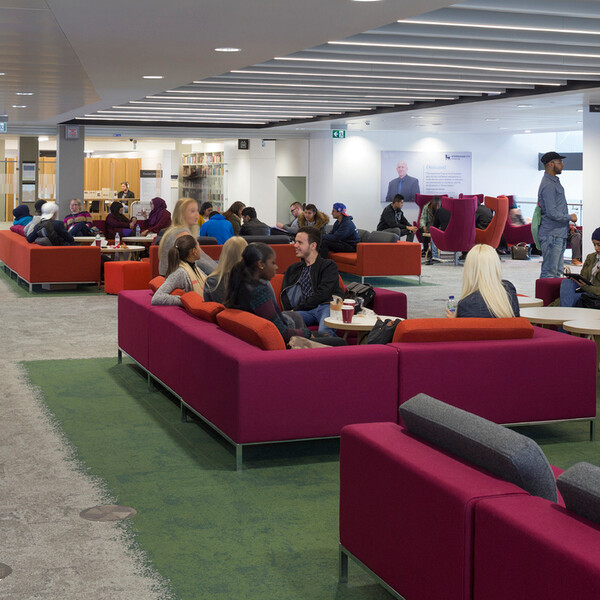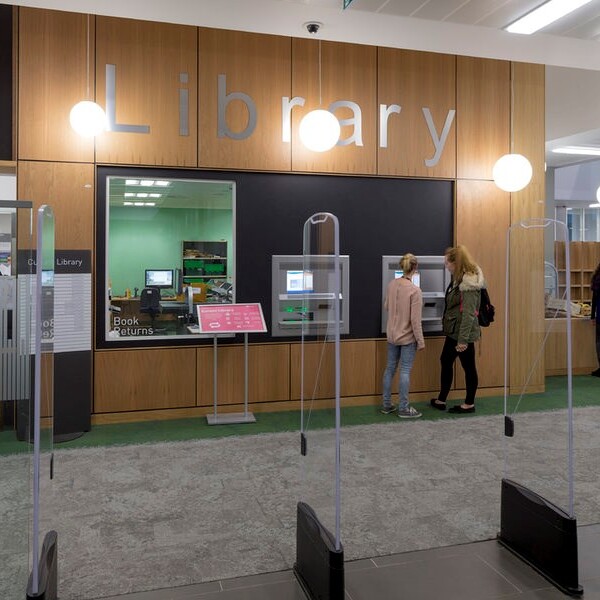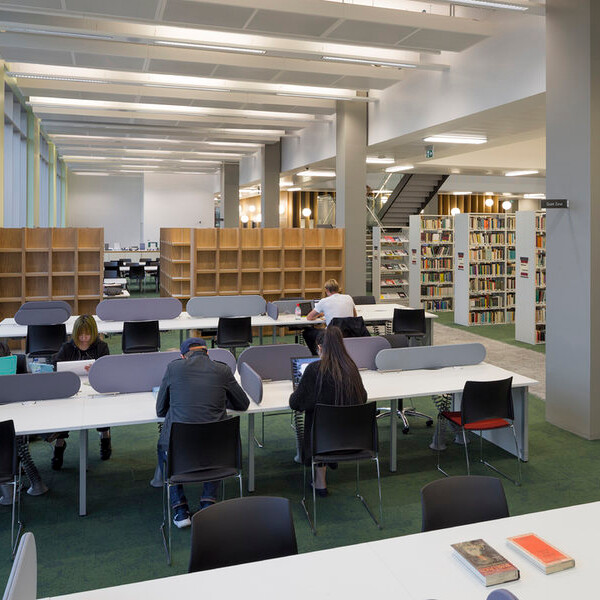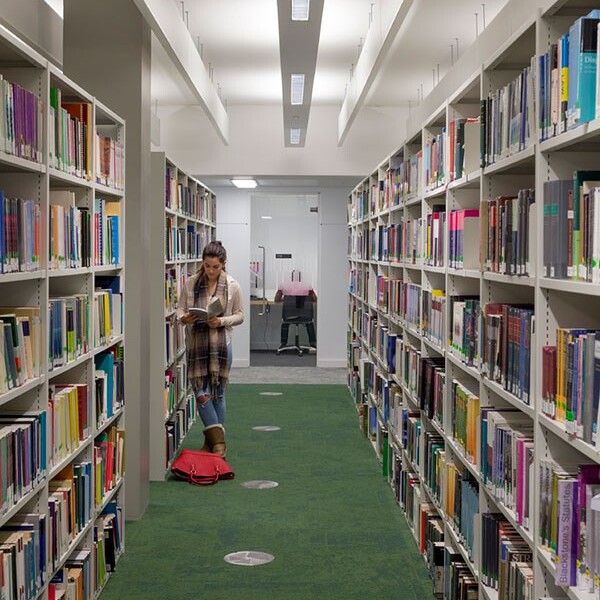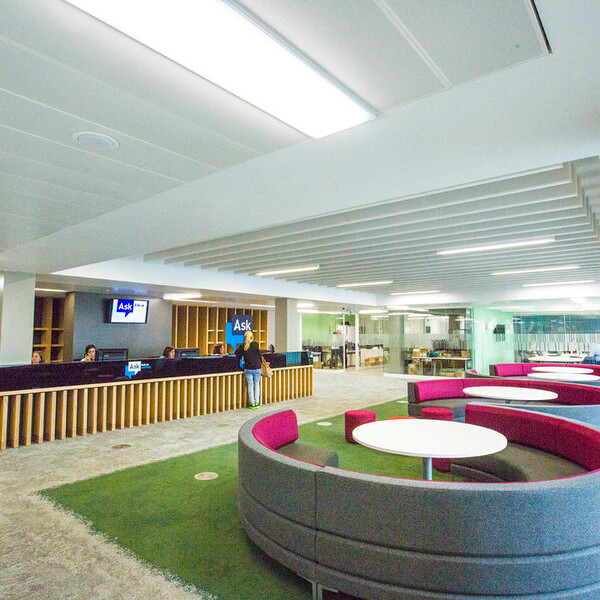
English Literature - MA
Currently viewing course to start in 2025/26 Entry.
Our MA in English Literature offers an advanced, thematic exploration of fascinating literary texts and their cultural significances. It is taught by a team of distinguished critics, scholars, and creative writers, all working at the cutting edge of their disciplines, in a forward-thinking learning environment with a reputation for research excellence and student support....
- Level Postgraduate Taught
- Study mode Full Time/Part Time
- Award MA
- Start date September 2025
- Fees View course fees
- Subject
- Location City Centre
This course is:
Open to International Students
Overview
Our MA in English Literature offers an advanced, thematic exploration of fascinating literary texts and their cultural significances. It is taught by a team of distinguished critics, scholars, and creative writers, all working at the cutting edge of their disciplines, in a forward-thinking learning environment with a reputation for research excellence and student support.
You will be taught in small groups, as part of a friendly, diverse academic community in English, where you will hone skills in critical reasoning, applied theory, and adaptive communication to prepare you for meaningful research and career opportunities in contemporary society. As part of the College of English and Media, you will join a thriving intellectual network and benefit from a range of exciting guest seminars and public events hosted by BCU’s Institute of Creative and Critical Writing.
The course is aimed at graduates who want to take their interest in literature to the next level, as a career development opportunity, or simply for the love of the subject.
What's covered in this course?
The taught content is bespoke, specifically designed for English Literature students, and avoids generalised cross-Faculty modules. We take a thematic rather than a period-specific approach, which allows an unconstrained investigation into literary history and the current relevance of the subject.
At the centre of the course are two thematic modules, ‘Literature and Truth’ and ‘Literature and Place’, which canvas texts ranging from the Early Modern period to the current day. The first asks about the role of perspective, narrative, and rhetoric in questioning, but also in creating, reality. The second encourages students to think about how literary writing responds to, but also constitutes, the places we inhabit and move through. Situated in the heart of a culturally diverse and always evolving city, you will be perfectly located to think about how writing intersects with the world it describes.
Other modules examine how texts evolve and the role of writing in modern culture. ‘Texts in Transition’ charts the development and transformation of literary texts through the processes of writing, publishing, editing, adapting and reading. ‘Literature in Practice’ develops high-level research skills and practical capabilities to pursue opportunities across different media, in collaboration, and in the public sphere. This will prepare you for a final project on a topic of your choice, but also identify the ways in which English Studies interacts with a changing world.
Building on proven research excellence and meaningful public engagement, our MA English Literature is a valuable route into an increasingly complex professional world.
Professional Placement Year
This PGT course offers an optional professional placement year.
I started my journey at BCU as a mature student studying English Literature. I enjoyed the course so much I moved on to BCU’s MA in English Literature. I continued to develop my critical and scholarly skills and, with the help of expert tutors, developed a PhD project centred on homelessness in the poetry of William Wordsworth. I have recently secured Midlands4Cities funding to cover the fees and living costs of doctoral research at BCU. The MA Literature has opened new doors for me. As well as the PhD I’m working as a research assistant on two funded projects and now teaching undergraduates myself! I’m very excited about my future career.
Joanne Shemmans
Why Choose Us?
- This is a fully taught MA in which you will study four bespoke modules in addition to a final project, for which you will have a dedicated tutor. You will study in small, friendly groups and receive expert tuition. All of our teaching is designed specifically for students of English Literature.
- BCU English is an established member of the M4C – the Midlands4Cities Doctoral Training Partnership. In English and Creative Writing we have a strong record of securing doctoral funding and our experience and expertise will be invaluable for students who wish to take their studies to the next level.
- Our teaching staff are also expert researchers in English Language and Literature. You will be joining an elite research community. 94% of research in English at BCU was judged to be either world-leading (4*) or internationally excellent (3*) in REF2021
- You'll become part of the Faculty of Arts, Design and Media’s 6,000-strong student community, and you will be supported by our highly experienced staff, who are all nationally and internationally recognised academics and writers.
- You’ll study at both the home of the School of English in Millennium Point, and at our £63 million development the Curzon Building, which boasts a richly stocked University Library, a wealth of digital learning resources, a Students’ Union and a dedicated student support hub.
- You will be able to take advantage of an exciting programme of guest seminars and public events hosted by BCU’s Institute of Creative and Critical Writing. There is also an option to study some Creative Writing within the course and we are well placed to help you develop final projects that explore the intersections of creative and critical work, of traditional scholarship and cutting-edge practice.
Similar Courses
OPEN DAY
Join us for an Open Day where you'll be able to learn about this course in detail, chat to students, explore our campus and tour accommodation. Booking isn't open for this event yet, register your interest and we'll let you know as soon as booking goes live.
Next Event: 28 June 2025
Entry Requirements
Essential requirements
Applicants are normally expected to have a minimum of a 2.2 honours degree, or equivalent, in English Literature or a Humanities subject such as History, Philosophy, Modern Languages, or Classics.
We also welcome applications from individuals who may not satisfy the normal entry requirements, but have equivalent professional qualifications and experience. These will be considered on an individual basis. Applicants who do not meet all of the essential entry requirements will be invited to interview.
Applying with international qualifications
See below for further information on applying as an international student.
If you have a qualification that is not listed, please contact us.
Fees & How to Apply
UK students
Annual and modular tuition fees shown are applicable to the first year of study. The University reserves the right to increase fees for subsequent years of study in line with increases in inflation (capped at 5%) or to reflect changes in Government funding policies or changes agreed by Parliament. View fees for continuing students.
Award: MA
Starting: Sep 2025
- Mode
- Duration
- Fees
- Full Time
- 1 year
- £9,190 in 2025/26
- Full Time
- 18 months (including Professional Placement - see below*)
- £10,110 in 2025/26
- Part Time
- 2 years
- Show fees
- £1022 per 20 credits
- Year 1 - 60 credits
- Year 2 - 120 credits
Fees for Part-time students
This course can be studied on a Part-time study basis. The cost per year of study is based on credit requirements for that year.
International students
Annual and modular tuition fees shown are applicable to the first year of study. The University reserves the right to increase fees for subsequent years of study in line with increases in inflation (capped at 5%) or to reflect changes in Government funding policies or changes agreed by Parliament. View fees for continuing students.
Award: MA
Starting: Sep 2025
- Mode
- Duration
- Fees
- Full Time
- 1 year
- £18,600 in 2025/26
- Full Time
- 18 months (including Professional Placement - see below*)
- £20,460 in 2025/26
- Part Time
- 2 years
- Show fees
- Year 1 - 60 credits
- Year 2 - 120 credits
Fees for Part-time students
This course can be studied on a Part-time study basis. The cost per year of study is based on credit requirements for that year.
Application deadlines
We advise you to apply early to allow sufficient time for you to prepare to start your studies in September. Please apply by Friday 18 July to allow time to arrange accommodation, student finance and visas where required.
Late applications will be accepted where places are still available, but please note that Welcome Week begins on Monday 15 September 2025, and teaching begins on Monday 22 September 2025. International students are invited to arrive from Monday 8 September 2025.
To find out more, see our application timeline.
Personal statement
You’ll need to submit a personal statement as part of your application for this course. This will need to highlight your passion for postgraduate study – and your chosen course – as well as your personal skills and experience, academic success, and any other factors that will support your application for further study.
If you are applying for a stand alone module, please include the title of the module you want to study in your Personal Statement.
Not sure what to include? We’re here to help – take a look at our top tips for writing personal statements and download our free postgraduate personal statement guide for further advice and examples from real students.
Course in Depth
Modules
In order to complete this course a student must successfully complete all the following CORE modules (totalling 180 credits)
This module is historical in order to be more richly contemporary. Students will be encouraged to think about the connections between writing, place and displacement as these things develop through time. Literature and Place asks how an informed understanding of writing and its involvement in different kinds and modes of location might constitute an intervention in the world today. To understand the complexities of this we will need to investigate the past. We will consider, for instance, imaginative, literary responses to important Tudor locations, writing about place and its relation to Romantic poetics and politics, and contemporary literary discourse engaged with the predicament of placelessness and statelessness. Taught sessions will be supplemented by seminars led by external experts, drawn from the English’s impressive range of professional / creative sector contacts.
This module allows you to explore the evolution and transformation of literary texts through processes of writing, publishing, editing and adapting. There is a focus on the roles of different participants (authors, publishers, editors, readers) in respect of three case studies from different periods and genres (normally but not exclusively a play, a collection of poems, and a work of prose fiction, one of which will usually be by a living writer). So doing, the module provides an introduction to Master’s level study of key critical issues and debates concerning authorship, the literary canon, and the roles of publishers, performers, editors and readers in the production of meaning. An editorial exercise forms part of the assessment regime, encouraging skills of research, pedagogy, transcription and critical evaluation.
The purpose of the module is to enable you to undertake a sustained, in-depth and theoretically informed research project exploring an area that is of personal interest to you. It is important that we can support you appropriately, so you will be guided towards choosing a research topic which is relevant to your discipline and in which your lecturers have expertise. The outcome may take the form of a written dissertation or a practical outcome with accompanying reflective, critical and contextual material. The main consideration when choosing your topic is that it must be relevant to your course and you should consider the relevance of this topic to your future academic or professional development.
At this level, you will be expected to work independently but you will receive additional one-to-one support from your supervisor, who will be familiar with your chosen topic area.
This module is an opportunity for you to develop skills which will contribute to the acquisition of key BCU graduate attributes; creative problem solvers, enterprising, professional and work ready and global outlook. In the context of the creative and cultural industries and at this academic level, this means an ability to: create work which is of a professional standard relevant to the discipline; undertake successful project planning to a professional standard, which may include budgetary and other relevant constraints; innovate and experiment; to self-evaluate and reflect critically on your work, situating your practice within the context of relevant academic/professional debates within your chosen medium.
On ‘Literature and Truth’ we will analyse texts that debate, construct, or challenge notions of ‘truth’. Our era has been labelled ‘post-truth’, but through literature and criticism (1848 – present) we’ll explore how truth has long been thought of as difficult to access, shifting, multiple, or provisional. At the same time, we’ll investigate how literature often attempts to make sense of the world, by considering writing and literary form as processes through which truth is sought.
We’ll consider how literature engages with issues such as ideology, nationality, beauty, justice, identity, and morality. Some of the questions we will cover include: what are the relationships between ‘truth’ and ethics, identity, politics, universality, or aesthetic value? What are the methods employed by aesthetic forms and genres to question or construct notions of truth?
This module will enable you to analyse, evaluate, and debate a variety of literary, academic, philosophical, and contemporary issues with the rigour and clarity required at postgraduate level study. You will learn how to develop independent judgements and discriminatory approaches to literature in conjunction with topics of crucial relevance today, informed by an understanding of contemporary academic and philosophical issues. You will develop crucial skills in communication, written expression, critical thinking, research, project management, and independent thought that are valuable in a variety of professions and workplaces.
This module addresses the place of literary writing in contemporary society. It brings together both literary critics and practitioners, and encourages you to explore the creative relationship between the different forms of writing they employ. You will study a variety of research methods, both in literary scholarship and in creative writing, and examine the evolving ways in which the contemporary writer and thinker can pursue their work both in and beyond publication, including pitching and bid writing, working across different media, collaboration, and shaping your role in the public sphere. The ideas and methods canvassed in this module will support you in developing your Major Project and enhancing your professional development.
Download course specification
Download nowMA English Literature is full time, taught over two semesters, and incorporates 180 credits. You will take one 40 credit and one 20 credit taught module in each semester. A major project or dissertation extends from semester two into the summer vacation.
Taught seminars will be supplemented by guest speakers who are concerned in various ways with the positive role that literature and literary study might take on in our present political and social climate (nationally and globally). This will include experts drawn from our impressive range of professional and creative sector contacts: e.g. Birmingham Literature Festival and Writing West Midlands.
Assessment briefs will allow you to develop a range of projects in the form of extended essays, and you will also develop a major project. This might have a traditional English Literature academic focus, but there is also scope to develop original projects with other parts of the Faculty (Media, Fine Art, Music) or in pedagogical theory (e.g.. a project concerned with innovate teaching techniques).
Employability
Studying MA English Literature will help you to develop a range of high-level skills and knowledge.
Upon completion of the course you will be able to:
- Form and communicate complex judgements and ideas and demonstrate comprehensive research skills relating to the advanced study of English Literature.
- Demonstrate a comprehensive understanding of techniques in conceptual analysis as it relates to the advanced study of English Literature.
- Critically evaluate current research and advanced scholarship in the discipline, to evaluate methodologies and develop critiques of them and, where appropriate, to propose new hypotheses.
- Demonstrate originality in the application of knowledge, together with a practical understanding of how established techniques of research and enquiry are used to create and interpret knowledge in the discipline.
- Develop the independent learning ability and self-direction required for continuing professional and academic development.
Industry Links
The School of English has links with local and regional arts organisations, authors, poets, and many more leading professionals. Our staff and students have worked with:
- Shakespeare Birthplace Trust
- The Birmingham Midland Institute
- Writing West Midlands (the Literature Development Agency for the region)
- Birmingham Museums & Art Gallery
- The Library of Birmingham
Facilities & Staff
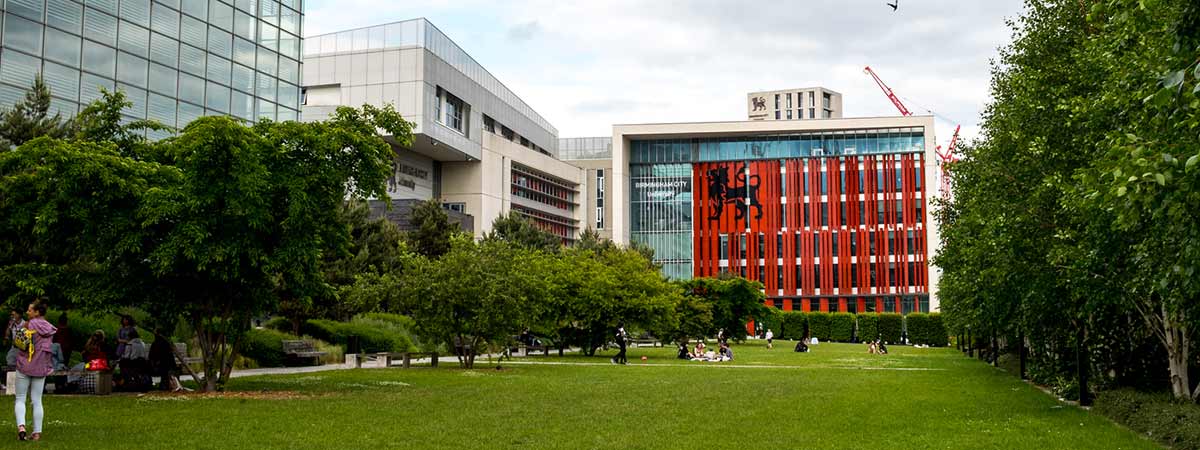
Our Facilities
When you join Birmingham City University, the first thing you will notice is the high standard of our campuses. With an investment of over £400 million across our buildings and facilities, we are committed to giving you the very best learning environment to help shape your experience.
Our English courses are based at both Millennium Point, and at our £63 million development the Curzon Building, located on our City Centre campus in the vibrant second city that is Birmingham.
Discover your bright and open learning spaces, your 24 hour (during term time) library, drama, media and radio studios, along with state of the art lecture theatres, and a variety of sociable break-out areas, all adding to your unique learning experience.
Our staff
Dr Anthony Howe
Reader in English Literature and MA English Literature Course Director
Dr Anthony Howe is Reader in English Literature and Associate Director of Research for English at Birmingham City University. Originally from the North East of England, he studied at Liverpool (BA; MA) before taking a PhD at Cambridge. Prior to his current post he taught at the Universities of Cambridge and Oxford. He is a Senior Fellow of the...
More about AnthonyDr Gemma Moss
Reader in Modern and Contemporary Literature
Before joining BCU, Gemma taught at the University of Salford and the University of Manchester, where she completed an MA in Postcolonial Literature and an AHRC-funded PhD. Gemma is author of Modernism, Music and the Politics of Aesthetics (Edinburgh University Press, 2021). She is currently editing E. M. Forster’s first novel, Where Angels Fear to...
More about GemmaProfessor David Roberts
Professor of English
David has taught in a variety of universities and maintained a strong interest in seventeenth-century drama and theatre. His most recent books have been about the lives of actors and writers. In 2010 his CUP biography of Thomas Betterton was shortlisted for the Theatre Library Association of America Prize. David...
More about David

